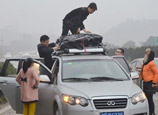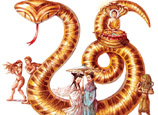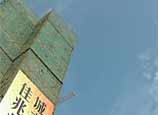
"Using homegrown branded vehicles as official cars will set a good example and influence more individual users to buy local cars," said Cui.
"The move by local and central government officials will hopefully set off a public trend for less-expensive domestic vehicle brands.
"In the past in China, it has been a sign of prestige to own a foreign car, and officials have followed that trend to demonstrate the difference between them and ordinary people. But that could be set to change," he added.
Government procurement accounts for less than 2 percent of the Chinese car market, but "the trend followed by individuals is harder to predict", said Cui.
Statistics show that almost 90 percent of vehicles bought by the government up until 2010 were foreign brands.
But the government's support for domestic brands decreased that to 80 percent by the middle of 2011.
Li Yuheng, an auto analyst with Guosen Securities, said that the trend will gradually start to affect foreign brand buying, giving struggling homegrown manufacturers the confidence to take on foreign rivals.
According to figures from the China Association of Automobile Manufacturers, in 2012 China's domestic automobile sales jumped 4.3 percent over the previous year to 19.31 million units.
However, the share of domestic brands in that market dropped by 0.4 percentage points.

















 A 9-year-old girl and her father are traveling to 31 major cities across China on foot and by hitchhiking.
A 9-year-old girl and her father are traveling to 31 major cities across China on foot and by hitchhiking.


![]()
